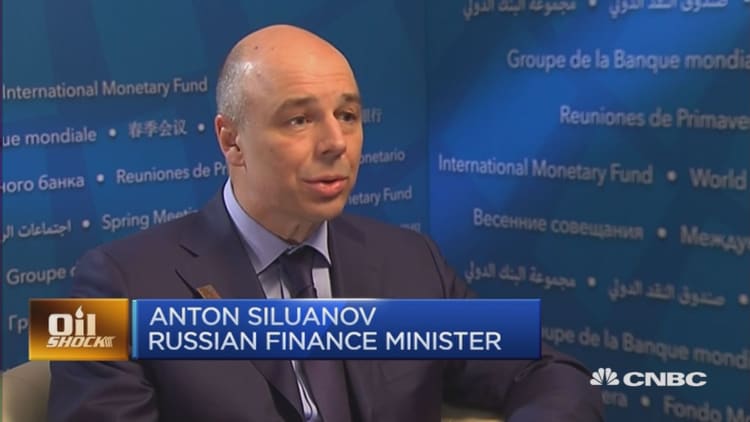



U.S. oil prices fell nearly 3 percent on Friday in thin trade as analysts anticipated a meeting of major oil exporters would provide a floor for the market, but do little to help to clear global oversupply quickly.
Futures slightly pared losses after oilfield services firm Baker Hughes reported the number of rigs drilling for oil in U.S. fields fell by 3 to a total of 351 in the previous week. At this time last year, U.S. producers were operating 734 oil rigs.
Oil producers led by top exporters Saudi Arabia and Russia will meet in Doha, Qatar on Sunday to discuss freezing output around current levels in an effort to contain a glut exacerbated by production that exceeds demand by about 1.5 million barrels a day.
It would be the first joint action by major OPEC and non-OPEC producers in 15 years, although Iran has refused to participate, saying that it wants to rebuild its output to levels achieved before imposition of the recently lifted economic sanctions.
"Unless there's a total surprise, the likelihood is that the Doha meeting on Sunday between OPEC/non OPEC will produce something very wishy washy and will be nothing more than smoke and mirrors," one trader said. "I therefore want to sell crude today."
Brent crude futures were down 66 cents, or 1.5 percent, at $43.18 a barrel by 2:33 p.m. ET. U.S. West Texas Intermediate (WTI) settled 2.75 percent lower, or $1.14, at $40.36.
Traders said profit taking by funds ahead of the meeting also added to the pressure on prices in the session.
With discussions among producers focusing on freezing output rather than cutting it, most analysts said they had little hope for a deal that reduces the global oversupply.
The crude surplus has pulled down crude prices by as much as 70 percent since mid-2014.
"A cut in production is very unlikely at this meeting and I would say it will probably not even be a discussion item on the meeting agenda," said Energy Management Institute analyst Dominick Chirichella.
"The conclusion for today is to buckle up your seatbelts — the ride could get wild next week."
Barclays said that while the Doha meeting does not materially change the oil market balances, if recent supply-side fundamental support holds and the market's expectations for a credible statement and commitment are met, it could help prevent prices from falling back to the low $30 range.
Consultancy Petromatrix said it saw the Saudis as a G20 member pushing for a deal to freeze output because both the IMF and the U.S. Federal Reserve are growing increasingly impatient about low oil prices.
Energy consultancy Wood Mackenzie said that "even if an output freeze is announced, we do not expect a genuine one to occur during the remainder of 2016."
Instead, Wood Mackenzie said it expected "OPEC output to rise 0.5 million barrels per day (bpd) year-on-year in 2016, with most of that growth coming from Iran and Iraq, both of whom have indicated plans to grow output in 2016."
— CNBC's Tom DiChristopher contributed to this story.


